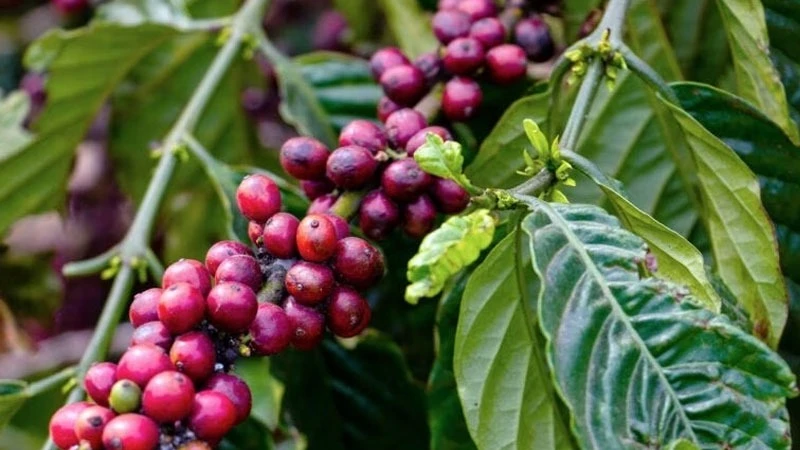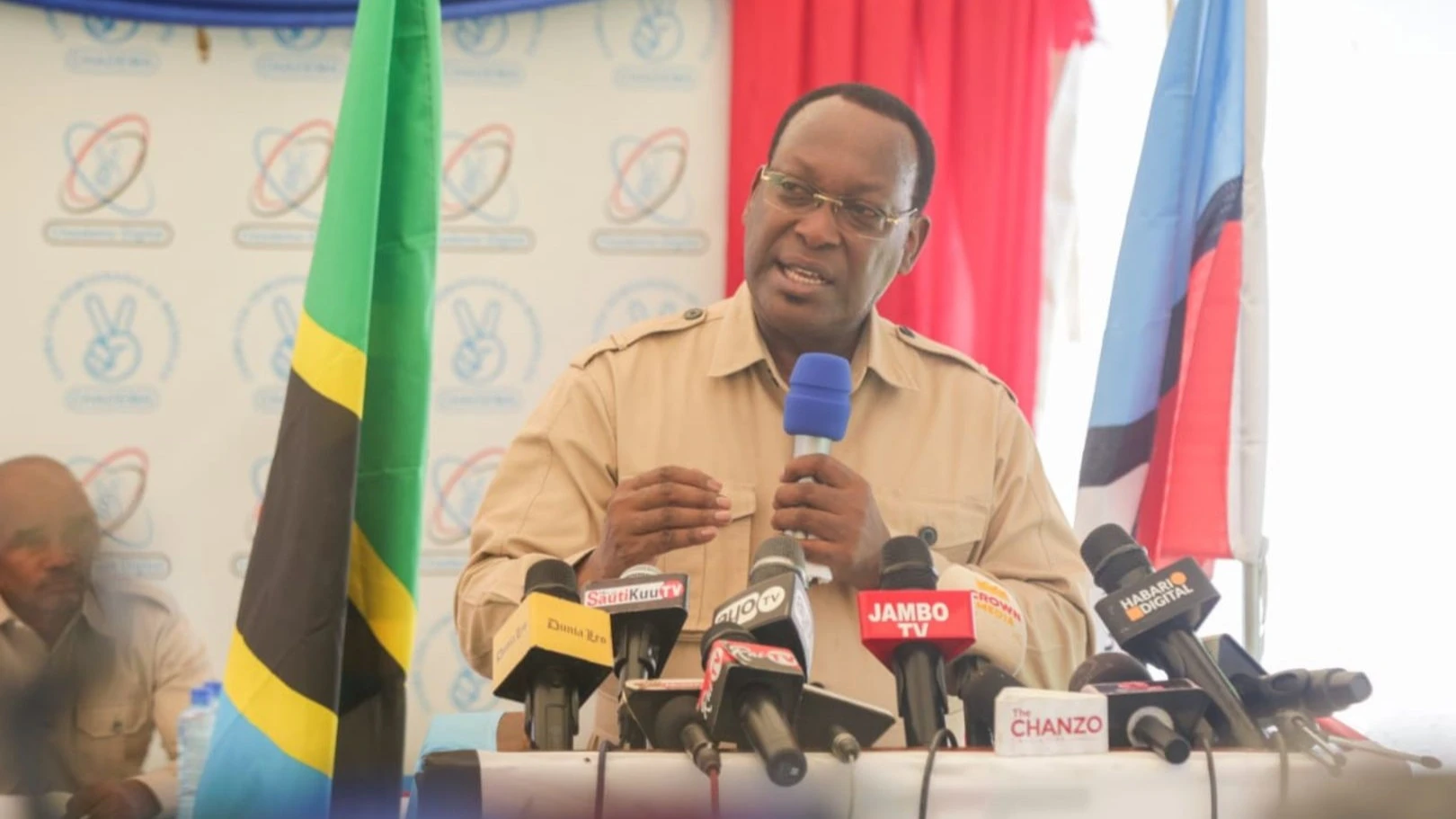As coffee expands in Bangladesh hills, conservationists worry about ecosystems

TEA’S history in Bangladesh as a popular recreational drink is almost a hundred years old. However, with economic development, the popularity of coffee is growing gradually in urban areas of the country.
According to data, the projected revenue in the coffee market in Bangladesh would be $48.97 million in 2029, with an annual growth rate of 13.52 percent, up from the figure of $25.98 million in 2024. Most of the current demand for coffee is met through exports from different countries.
Considering this, the Department of Agricultural Extension (DAE) and various nongovernmental organizations, including Palli Karma-Sahayak Foundation known as PKSF and USAID Bangladesh, have been promoting coffee cultivation among farmers under their programs, creating livelihood options through cultivating cash crops like coffee and others.
According to DAE, two varieties of coffee, Arabica and Robusta, are cultivated in Bangladesh. Due to favourable weather conditions, cultivation is mainly focused on the Chittagong Hill Tracts, comprising of three hill districts — Bandarban, Khagrachari and Rangamati — located in the south-eastern part of the country.
Meanwhile, DAE has initiated a project titled Research, Development and Extension of Cashew Nut & Coffee, which will cost 158.54 crore taka ($13.5 million) from 2021-25.
Project data show that coffee cultivation currently occupies around 2,000 hectares (4,940 acres) of land. Of these, around 1,800 hectares (4,450 acres) are in the Chittagong Hill Tracts. All these plantations were in the last three years.
Shahidul Islam, director of the cashew nut and coffee project, told Mongabay, “We are expecting to increase cultivation to 10,000 hectares (24,700 acres) by 2025, with the target of 4,000-5,000 tons of production annually.”
Usually, coffee plants start production within two or three years of planting. That means that by 2026-27, initial production might be 1,000 tons annually. But in the next few years, production will reach the target, he added.
Farmers involved in the cultivation say they are happy, and they increase the cultivation areas as they get a good return on investment.
Nature of coffee farming in Bangladesh
A study shows that coffee plants usually grow in a shady environment along with other plants. However, another popular process involves covering vast land areas with coffee plants, typically considered a monoculture.
Bangladesh’s hill forests cover about 9.33 percent of the country’s land in the Chittagong, Khagrachhori, Bandarban, Rangamati, Cox’s Bazar, Sylhet and Moulvibazar districts.
Of the 2.5 million hectares (623 million acres) of government-owned forest in Bangladesh, the districts of Khagrachhori, Rangamati and Bandarbans cover 1.09 million hectares (2.7 million acres).
Regarding ecological diversity, the region is considered one of the significant ecological hubs, with a diversity of floral species including chapalish (Artocarpus chaplasha), gurjan (Dipterocarpus spp.), Syzgium, jarul (Lagerstroemia speciosa), gamhar (Gmelina arborea), koroi (Albizia spp), civit (Swintonia floribunda), toon (Cedrela toona), bandorhola (Duabanga grandiflora), telsur (Hopea odorata), uriam (Mangifera sylvatica) and dhakijam (Syzgium grande).
A large part of that is degraded for many reasons, including excessive use of forest resources by the local communities who depend on and sell bamboo and trees.
In recent years, the government has been trying to restore 0.75 million hectares (1.85 million acres) of forest coverage with afforestation, horticulture and agroforestry. However, the move can be termed monoculture, ultimately damaging ecosystems.
Though coffee cultivation, along with different types of orchards, helps ensure the people’s livelihoods and makes them financially solvent, in the long run, the practice will destroy the region’s natural ecosystems, said Farid Uddin Ahmed, senior adviser of the Arannayk Foundation.
At the same time, people are becoming more interested in cash crops such as coffee and orchards of different species like mango and pineapple rather than focusing on planting the forest’s primary species, which ultimately reduces the natural forest coverage.
Many Indigenous communities have long lived in Khagrachhari, Bandarbans and Rangamati. The Bawm community, for example, is used to growing coffee around their homes and drinking it regularly.
Fonkal Bawm is a farmer from Bandarban hill district. Since 2016, he has been cultivating coffee commercially in his 5-acre orchard, which also produces papaya and pineapple.
Like him, many Indigenous farmers produce coffee, and the current production in the country is around 25 tons.
According to a study published in Nature, though coffee is one of the most important agricultural products globally, monoculture often leads to poor growth, low yield and serious soil-borne disease in coffee plants. This eventually causes socioeconomic losses and halts the industry’s sustainable development.
The farmers have already used various chemical fertilizers and pesticides to grow the plants and ensure good yields. For instance, Fonkal said he often used pesticides to save plants and yields from different pests.
Shahidul, the project director, also said, “In addition to ensuring the farmer’s earnings, one of our objectives is to increase the green coverage.”
He added that the government emphasizes on the ability of these plantations to reduce landslides, as their roots retain soil, preventing erosion.
However, a blog mentioned that monoculture enhances the excessive use of chemical fertilizers and pesticides and decreases soil fertility, eventually increasing soil erosion.
Regarding this, the conservationist, Farid Uddin, said the government should emphasize planting local trees that can accommodate the conditions and enrich local biodiversity rather than importing foreign and alien species.
Farid Uddin also said that instead of seeking short-term solutions, people need to focus on planting native forest species like chapalish, gurjan and civit, which are the primary forest species and capable of retaining soil and protecting the hills from landslides.
By Abu Siddique
Top Headlines
© 2024 IPPMEDIA.COM. ALL RIGHTS RESERVED

























